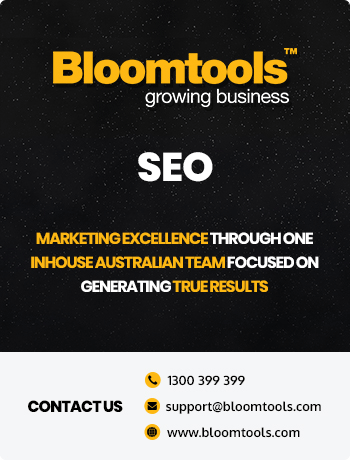6 SEO Mistakes to Watch Out For in 2019
)
Your business is running nicely, your website is live, you've got your Google tools setup, but now you want to improve your ranking in the search results.
Everyone keeps telling you about SEO - search engine optimisation - but half the things you read seem to contradict the other half.
You know you need to make changes to improve your results, but you can't tell the difference between which changes will help your ranking and which changes will actively harm it.
SEO can be a frustrating experience - a lot of it is based on figuring out how Google's constantly changing algorithm works (or predicting how it might work in future) and trying to make changes accordingly.
Because a lot of SEO can be a guessing game, sometimes pointless changes that start as rumours become fact and sometimes genuinely useful changes are ignored because they sound made up.
It can be difficult to figure out which is which, but if you're interested in learning more about SEO and how it can help your business and website, contact your local Bloomtools consultant today.
In the meantime, check out the below list of 6 SEO Mistakes to Avoid in 2019 compiled by Bloomtools.
Link quantity vs. link quality
It can be quick, easy and cheap to purchase backlinks to your website, but it can be quite dodgy and spammy - it's what is considered a blackhat SEO technique.
While these backlinks might result in an initial boost in traffic, these numbers probably won't remain for very long.
Not only will most of the backlinks from these sites have little effect on your ranking due to their low domain authority, but they can also result in some severe consequences: Google may actually penalise your site based on the spam level of the backlinks.
It is more important to focus on the quality of backlinks rather than the quantity.
Search for websites that are considered the experts in your industry or field - these sites will have much higher domain authorities, and a backlink from them will be worth that much more than multiple backlinks from lesser sites.
Don't depend on backlinks at the expense of quality content
If you're consistently creating relevant, high quality content, over time you will be considered an expert in your field or industry, which will help increase your domain authority (and that means other websites will start asking you for backlinks).
Google considers quality content to be around 2,000 words long (based on the websites that appear on the first page of the search results) - but it's important not to just stuff keywords into your text until you reach a certain length.
It's important to write content aimed at users rather than search engines - content that answers a user's questions quickly and succinctly.
When users are satisfied with your content and trust what you say, then Google will know you're worth ranking higher, especially if you've also got those backlinks from other trustworthy domains. (Remember to put some good Calls To Action, within your content. As remember, you are more focused on people taking action on your website vs just writing good content for SEO purposes)
The importance of internal links
Most of the time the first page of your website users will encounter will be your Home page.
This is your main landing page and usually the page on your site with the highest authority.
While you probably have a main menu to help users navigate around your site, it's also recommended to add internal links within your content - not only will this improve the usability of your website, but it also results in a number of other useful benefits as well.
These benefits can include spreading the link juice or equity from your Home page to your other pages, increasing the number of page views, and reducing the bounce rate.
Also add links on other pages, where they make sense. This will again help in the useability of your website, but also tells Google what your website is about.
Remember social media
When you're busy focusing on links (external and internal) and writing quality content, it's important not to forget about social media.
Before everyone spent their free time staring at Facebook and Twitter on their smartphones, having a website for your business was considered to be enough of an online presence - unfortunately, this is no longer the case.
Users will now expect to see your Google My Business listing when they search in your area and they will think it's strange if you don't have a Facebook account.
Having an online presence besides your website is useful, especially if you're a small business.
Google My Business and Facebook (and Twitter, Instagram or LinkedIn, among many others) give you another avenue to promote your business and website and engage with customers both new and old. Remember to place teasers for your blogs on all your social media locations, to add value to them, drive traffic to your website and increase your quality links back
We have lots of great articles on Google My Business - eg. How to get more reviews on your Google My Business
More pages doesn't equal more traffic
More pages on your website might mean more pages for Google to index and therefore more chances of people find you on Google, but it doesn't automatically mean more traffic.
If you haven't put time and effort into all of the pages on your website, then there's no reason for users or search engines to care.
All of your pages should be useful and relevant with high-quality content that provides a satisfying experience for everyone that comes across it.
Much like backlinks, it's recommended to focus on page quality instead of page quantity. So if you are reviewing your current website, often we ask clients to update some of their older pages, and add more content of value to them.
Bounce rate and rankings
Having a low bounce rate (the percentage of single-page visitors to your website) is great, but it doesn't necessarily have anything to do with your ranking on Google.
Reducing your bounce rate doesn't automatically equal a higher ranking and a higher bounce rate doesn't automatically equal a lower ranking.
You should aim for a lower bounce rate because it means users are spending longer on your website visiting more pages (which means they are more engaged with you, and for potential clients this results in higher conversions), not because you think it will help you get to the first page of Google.
You can usually reduce your bounce rate by adding more quality content (if a user visits a page with mediocre or irrelevant content, then they will leave immediately), ensuring the page is mobile responsive (there's nothing worse than visiting a non-responsive website on a mobile device), and reduce the loading times of your website (if a user has to spend too long waiting for a page to load then they'll go somewhere else). To learn more, read this blog: Everything you need to know about bounce rates
It is these changes that will also help improve your ranking on Google while reducing your bounce rate at the same time.
Need help?
SEO can be time consuming and difficult to master - it's the kind of thing that's best to leave to the experts. Contact your local internet Bloomtools consultant for an initial SEO analysis of your website today.
Another good blog to read: Local SEO: How to get your website to rank higher in 2019
| Tags:Search Engine Optimisation |
Check Out Our
Recent Articles
- The 2026 Visibility Playbook: How to be Findable, Believable, and Easy t...
- Get Rewarded: How to Double Your Reach by Nailing Social Media Interacti...
- Google’s December 2025 Core Update: What It Means for Your Business
- Your Brand Doesn’t Start With Your Logo - It Starts Inside Your Business
- 2025: The Year AI Search Decides Which Businesses Get Found (and Which D...



